IHE Symposium makes an in-person comeback in 2022
27 October 2022
On 13 November 2022 we were delighted to welcome the UCL healthcare engineering community back to Wellcome Collection for our annual showcase.
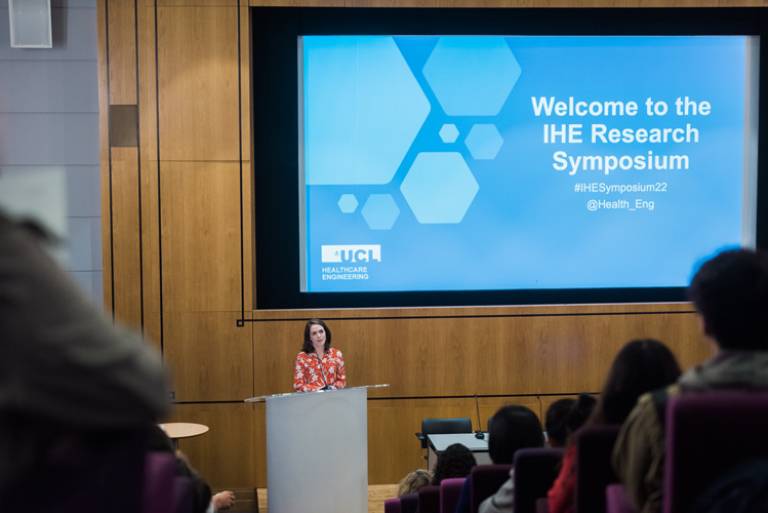
Our fourth IHE research symposium was a celebration of UCL’s healthcare engineering excellence.
Highlights included:
A focus on digital health
A panel discussion on sustainability in healthcare
Early-career researcher poster session
Clinician and engineer duos talking about their collaborations
A spotlight on our IHE Summer Studentship Scheme
Information about the UCL Therapeutic Innovation Networks
The event was hosted by Oriol Roche i Morgo, a researcher in UCL Medical Physics and Biomedical Engineering, and a former IHE Impact Fellow.
First up, we heard from leading digital health researchers about their latest advancements.
Our Deputy Director (Digital) Professor Marianna Obrist discussed her work in digital sensory health, and the economic and societal potential of smell technology. 20% of people over 60 are affected by a partial or total loss of smell and this can have an enormously negative impact on quality of life. Marianna also explained how smell dysfunction can be an early biomarker for common degenerative conditions such as Alzheimer’s and Parkinson’s.
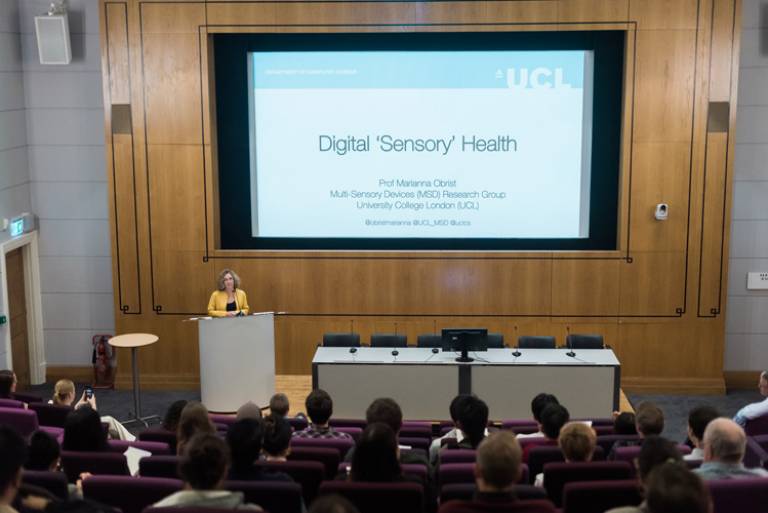
Professor Henry Potts’ talk was entitled ‘digital health in a pandemic, and in a pingdemic’. He spoke about his work on the NHS Covid-19 app and measuring its public perception and use.
Professor Paul Foster, a consultant at Moorfields Eye Hospital, gave an insight into his work on ‘Project HERCULES’ - a piece of research which aimed to optimise the efficiency of diagnostic hubs, while still providing high-quality care. They did this by creating a reconfigurable hub at Brent Cross Shopping Centre.
Finally, Professor Sonya Crowe and Dr Zella King described their work using machine learning to provide real-time predictions of hospital admissions for emergency patients at UCLH.
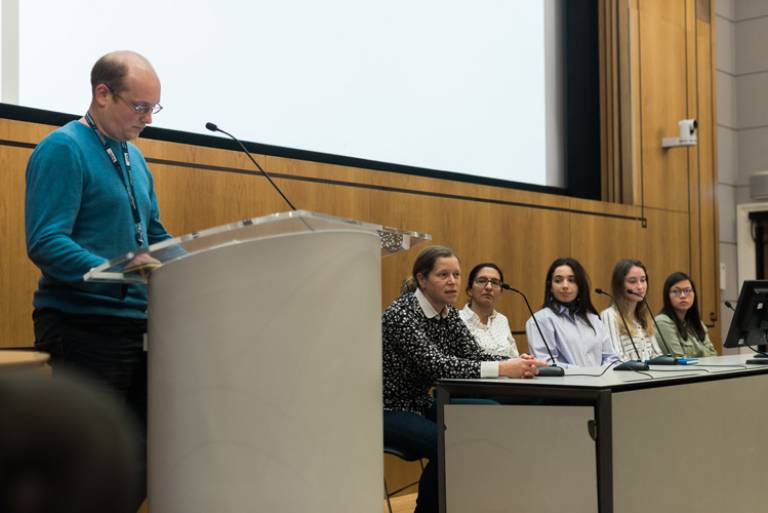
Billy Dennis (left) chaired a session on the IHE Summer Studentship Scheme
Up next, we gave the audience an insight into the IHE Summer Studentship Scheme, which just wrapped up its second year. The studentship is an 8-week paid placement working in the heart of a research hospital on a multidisciplinary project.
UCL biomedical engineering undergraduate students Alba Morillo Paterson, Rachel Tan, and Ines Marti Vigray shared their experiences of working in RNOH over the summer. All three mentioned how the programme had been an enriching learning experience and given them further insight into the field of biomedical engineering.
Helen Cooksley, Portfolio Manager for the Translational Research Office, wrapped up the morning session with a look at the funding schemes her team provide. The TINS Pilot Data Scheme provides funding for early-career researchers to generate pilot data for translational healthcare engineering projects. The scheme enables awardees to learn crucial skills, generate data, and lead them to follow-on funding.
We picked up in the afternoon with a fascinating panel discussion on sustainability in healthcare, hosted by Luke O’Shea, Executive Lead for Sustainability at UCLH.
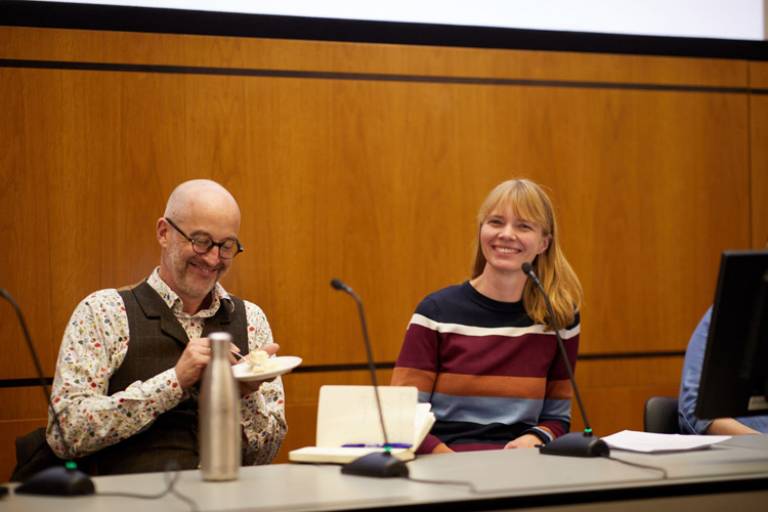
Prof Mark Miodownik and Dr Gesche Huebner
Luke was joined by:
- Prof Mark Miodownik (UCL Mechanical Engineering)
- Dr Alexandra Lyne (UCLH/Eastman Dental Hospital)
- Dr Gesche Huebner (UCL Energy Institute)
Then, we heard from clinicians and engineers who had collaborated on interdisciplinary projects.
Dr Henry Goodfellow and Jonthan Waywell discussed their work on the Living With COVID Recovery app. They discussed the challenges of developing an app to support people with what was then a novel disease with no existing NHS infrastructure. They described the app development process – from mapping user journeys to content writing and video creation, through to integrating it with clinical pathways. By September 2022, the app was being used by 34 long COVID clinics and more than 6,000 patients.
Carmen Salvadores Fernandez and Dr Hugo Layard Horsfall, both from WEISS – a centre founded on engineer-clinician collaboration – spoke about developing a sensorised surgical glove which can analyse forces during surgery. This innovation will provide real-time force data to clinicians and reduce the risk of tissue damage during surgery.
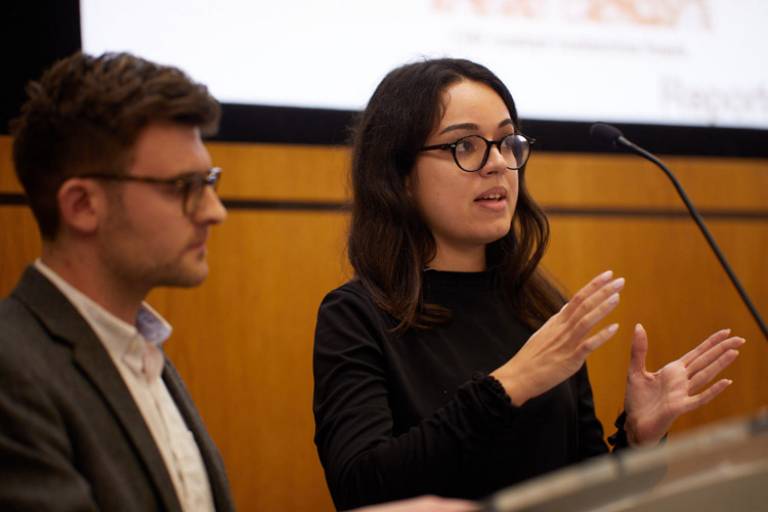
Hugo Layard Horsfall and Carmen Salvadores Fernandez
We wrapped up the day with a look at the IHE Impact Fellowship scheme. A panel of Impact Fellow alumni spoke about their experiences during the Fellowship, and their future engagement and impact plans.
Thank you to everyone who came along and made the day such a special event.
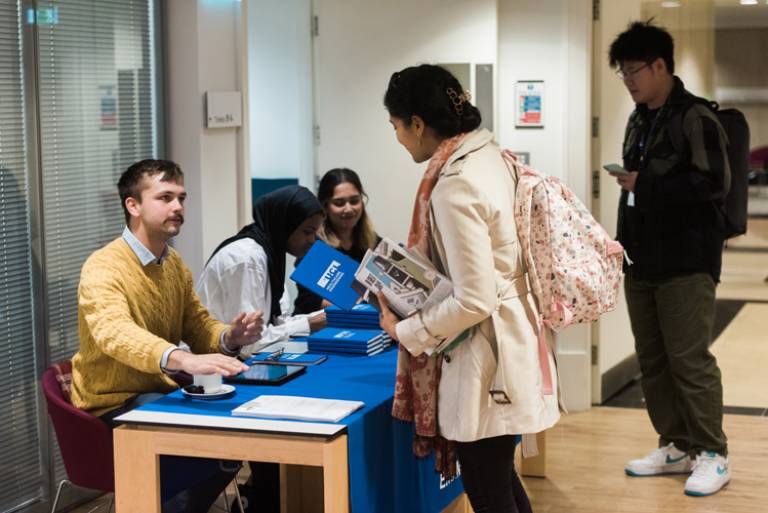
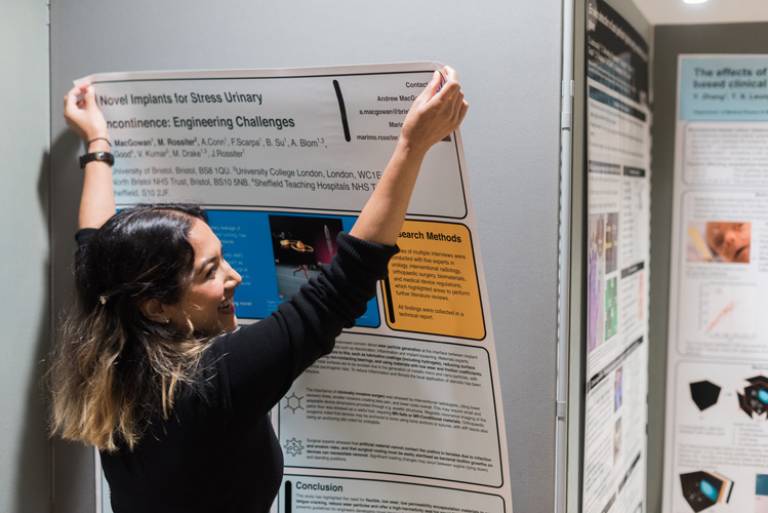
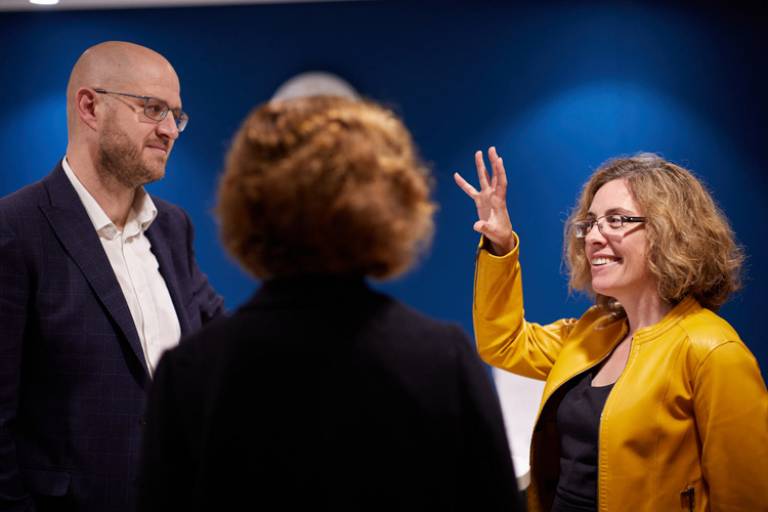
 Close
Close

